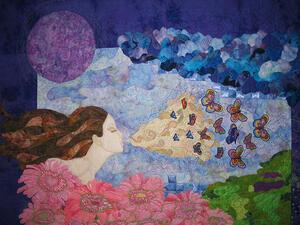This is not about women playing dance. It’s about revolution.
The most courageous fourteen year old girl I have ever set eyes on, Malala Yousafzai, was shot in the head for her advocacy of education for women and I am spending my time organizing a flash mob of dancing women to promote gender equality. Is there something wrong, even laughable and inappropriate, with this picture?
Women Dance for a Change was inspired by a repugnant, though far less deadly, assault against Jewish girls seeking an education: I refer to the worldwide outrage in response to ultra-Orthodox men in Beit Shemesh spitting on young women going off to school.
Within a week of the Beit Shemesh incident, Miri Shalem organized a flash dance in the town’s public square. This has led to a new movement called Women Dance for a Change.
On October 26th, there will be another flash dance in Israel, this time to raise awareness of breast cancer: Jewish, Palestinian, Christian and Arab women will join in the round.
I have long danced. It is my way to exorcise personal demons, indulge the quiet-mind moment, make music visible, communicate without words and live fully in a woman’s body. But when a 14-year old activist and women’s very lives are threatened by such murderous hatred, is it a time to dance? Or, as in the famous verse of Ecclesiastes, is it more appropriately, a time to mourn?
I am not alone in pausing to question the suitability of dance at a time of life-threatening crisis. Is it too playful? Too non-confrontational? Is dance, in sum, too celebratory to be considered a powerful tool of social change?
Below I quote at length from Gillian Shuttes' responses to those questions on One Billion Rising:
"Dance denotes a freedom of body, mind and soul. It is both a celebratory and rebellious act in that it speaks of a freedom of movement, a non-restricted relationship to body and is the antithesis of an oppressed, restrained and violated body.
It is erroneous to think of celebration as non-revolutionary. Celebration is the ultimate rebellious act in a world that is dictated to us by non-celebratory forces.
It is every woman’s right to live in a celebratory world – one that celebrates her sexuality, her beauty, her wisdom, her body, her right to be orgasmic and free."
I wish I had written these words myself. It is why I dance and why I support Women Dance for a Change. Take a look.
This is not about women playing dance. It’s about revolution.






